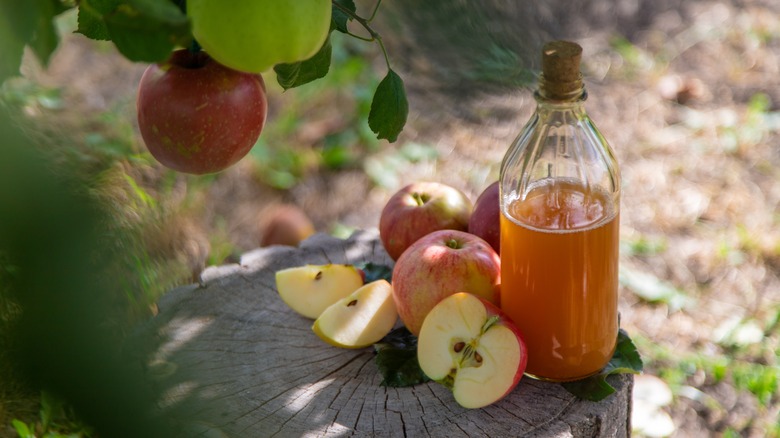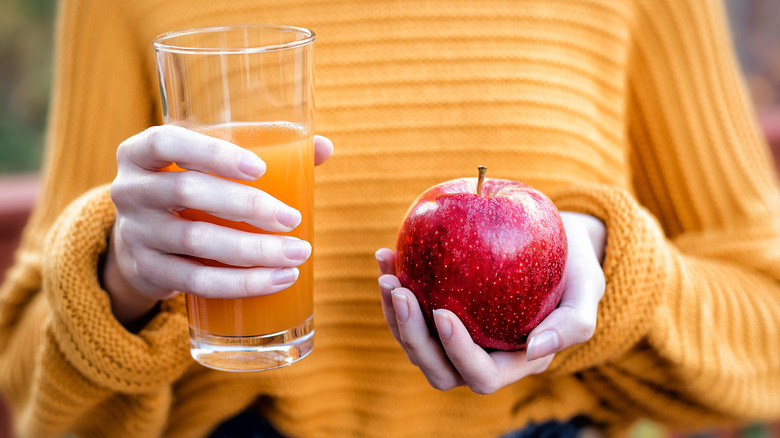Why Health Officials Warn Against Drinking Unpasteurized Apple Cider
When the air begins to get crisp and the foliage starts to turn a riot of reds and oranges, it's time for apple cider. But be warned that this sweet, tangy treat may be harboring a secret, especially if you're getting it at a farmers' market, orchard, or roadside stand. Apple cider, not to be confused with apple juice, is unfiltered and sometimes unpasteurized. It's this second feature that holds the potential for trouble.
Bacteria from the apples or other sources can sometimes find its way into the raw juice, according to the U.S. Food and Drug Administration. Pasteurization is a process that uses heat to kill any bacteria that may end up in the apple cider, but it's not required by the FDA if the cider is being sold directly to a consumer by the glass or made, packaged, and sold onsite. If the unpasteurized apple cider is packaged (rather than sold by the glass), it has to be refrigerated and have a label warning to consumers that it's not pasteurized.
Who is most at risk?
Unpasteurized cider has contamination risks similar to pre-cut fruits that have gone through more physical processing than whole fruit and can end up with bacteria like salmonella or E. coli in it. These bacteria can cause vomiting, diarrhea, abdominal pain, or flu-like symptoms that can typically come on in one to three days. There are certain groups of people who should avoid unpasteurized apple cider, including babies and young children, pregnant people, older adults, and people with compromised immune systems.
The apple cider sold at most grocery stores is pasteurized, but if you're buying it from an orchard or similar venue, look for a warning notice on the package. And if the apple cider is sold by the glass, be sure to ask whether it's been pasteurized or not. So next time you're rounding up the ingredients for celebrity chef Gordon Ramsay's favorite cocktail, "Wake Up, You Donkey" — which combines cider, tequila, honey, and elderflower — think twice about getting the unpasteurized cider.

